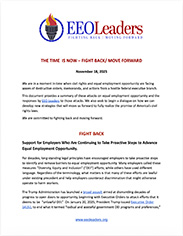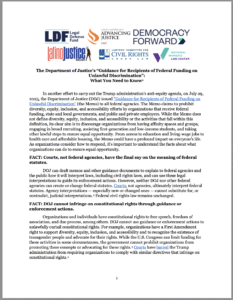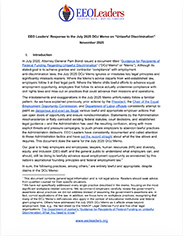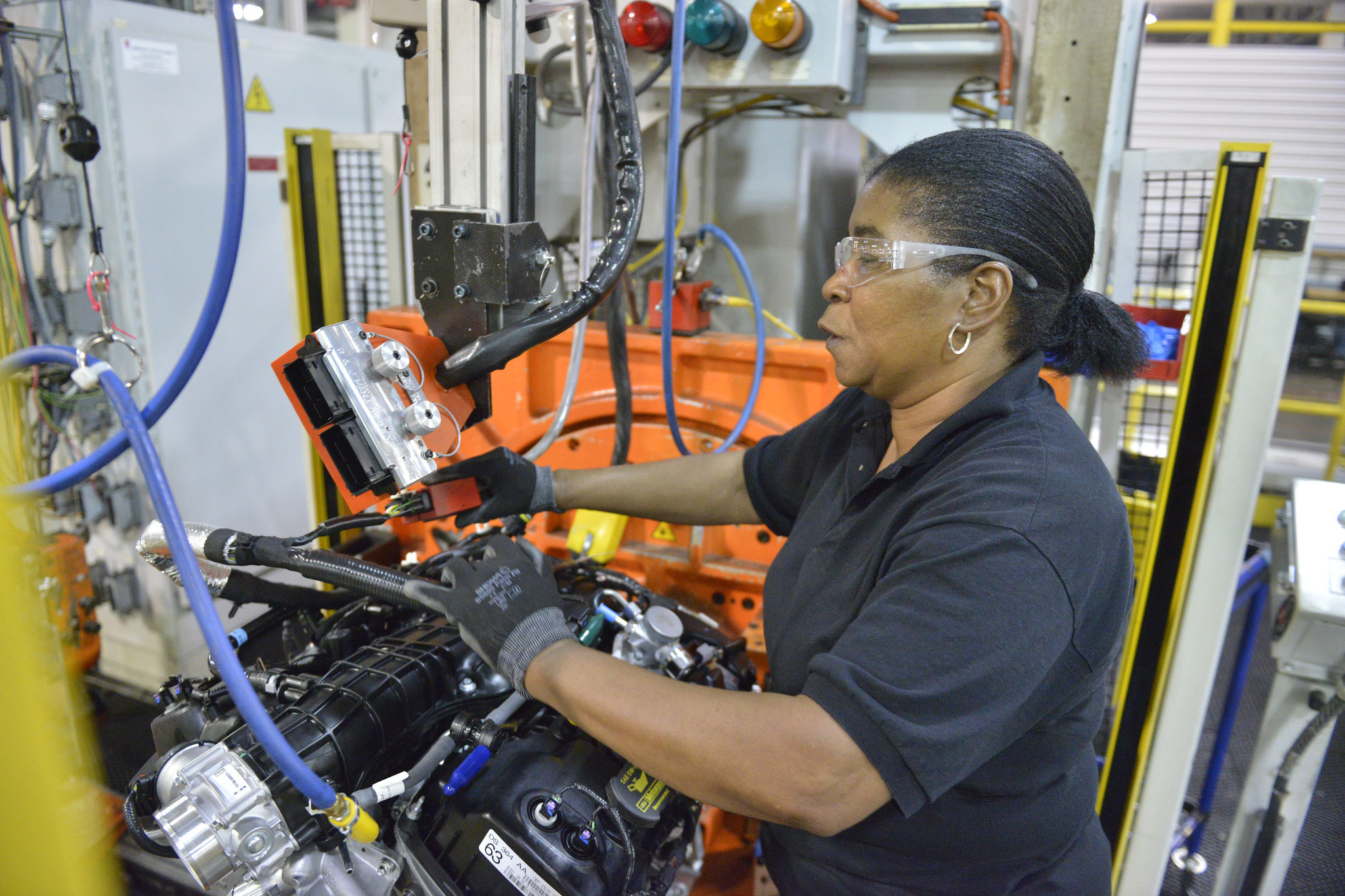Legal Experts Clarify Federal Anti-Discrimination Requirements
This collection of documents offers legal analysis and official expert guidance from state attorneys general, former federal officials, and legal experts, addressing misinformation in recent federal communications on diversity, equity, and inclusion programs.
These resources clarify what federal anti-discrimination law actually prohibits, helping organizations and employers understand their legal obligations while continuing their work.
 EEO Leaders’ Response to Federal Attacks on Equal Employment Opportunity (November 2025)
EEO Leaders’ Response to Federal Attacks on Equal Employment Opportunity (November 2025)
A coalition of former officials from the Equal Employment Opportunity Commission (EEOC) and the Office of Federal Contract Compliance Programs (OFCCP) recently released a summary of the administration’s attacks on DEI and EEO leaders’ responses to those attacks. Read the memo.
EEO Leaders’ Response to DOJ Memo on “Unlawful Discrimination” (November 2025)
A coalition of former officials from the Equal Employment Opportunity Commission (EEOC) and Office of Federal Contract Compliance Programs (OFCCP) released a clarifying analysis of the exaggerations and misstatements in the U.S. Attorney General’s “Guidance for Recipients of Federal Funding on Unlawful Discrimination” memo. Read the memo.
 Response to DOJ “Guidance for Recipients of Federal Funding on Unlawful Discrimination” What You Need to Know (August 2025)
Response to DOJ “Guidance for Recipients of Federal Funding on Unlawful Discrimination” What You Need to Know (August 2025)
Legal analysis from public interest lawyers examining the U.S. Attorney General’s “Guidance for Recipients of Federal Funding on Unlawful Discrimination” memo—correcting the record on what is actually prohibited versus common misinterpretations. Read the memo.
Open Letter to the Federal Contractor Community from Former U.S. Department of Labor Officials (April 2025)
An open letter from ten senior, former Department of Labor officials, including former OCCP Director Jenny Yang, helping federal contractors navigate current legal requirements and clarifying that proactive diversity practices, self-assessments, and barrier removal remain lawful and essential for civil rights compliance. Read the open letter.
Multi-State Guidance Concerning Diversity, Equity, Inclusion, and Accessibility Employment Initiatives (February 2025)
A multi-state guidance document from Attorneys General, the chief legal advisors and law enforcement officials of states, clarifies federal anti-discrimination law requirements and addresses misconceptions about diversity, equity, and accessibility programs. Read the document.




